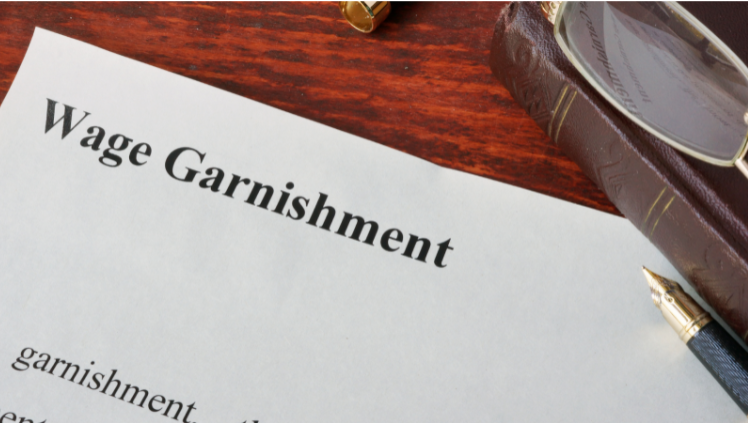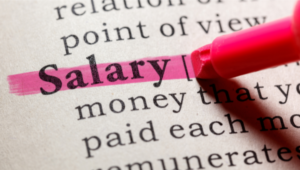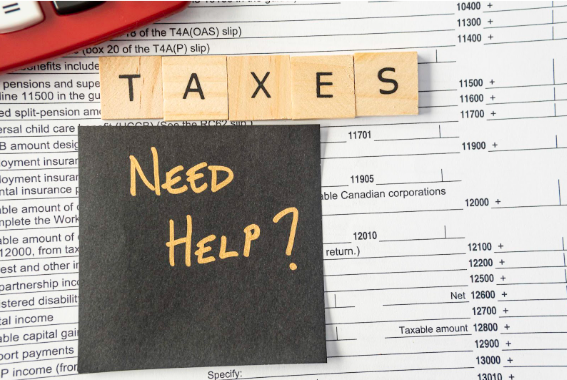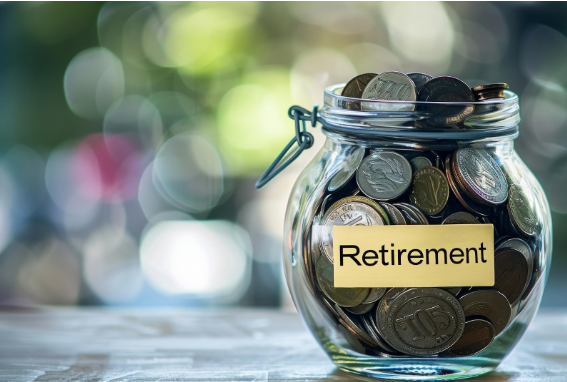
Wage Garnishments: What Type of Income Can be Garnished?
Many of our clients are stressed about debt, and are trying to manage their day to day bills while trying to navigate complex solutions to get out of debt.
If you have debt, you might be subject to collection calls where creditors threaten to garnish your wages, or your employer is already garnishing your wages to pay your creditors.
Wage garnishment is an unwelcomed scenario if you’re already living paycheque to paycheque. If you have difficulty paying for living expenses, a wage garnishment puts you even further behind from meeting your financial goals.
If you are behind on support payments, you may face wage garnishment. If your credit cards or loans are not being paid they may be sent to collections, and/or court proceedings may start, putting you at risk for wage garnishment.
Struggling to find a way out, it is important to know the basics of wage garnishment as it is a possible consequence of unpaid debt to creditors.
What is wage garnishment?
Wage garnishment is a legally binding process where a creditor requests the court that a part of your wages is sent directly to them to settle your debt.
Whether you’re behind on taxes, support payments, credit card debt, or loans, your creditor can apply to have your employer send a portion of your wages directly to them.
Generally, your employer cannot garnish wages unless the creditor applies for a legal proceeding. If they are successful, the court orders your employer to garnish wages to settle the debts you owe.
There are exceptions for the CRA and government agencies. Wage garnishment for support payments, such as child support or spousal support, and for taxes owed to the CRA can proceed without a court order.
How much of my wages can be garnished?
In Ontario, under the Ontario Wages Act, commercial creditors, such as banks, payday lenders, credit card companies, can generally request to garnish 20% of your net salary or wages.
Private creditors typically have limited powers and need to apply for a court order for wage garnishment.
If you are behind on your loans or bills and face wage garnishment, the court can order your employer to garnish 20% of your salary – after statutory deductions, such as CPP and EI. Your employer will only garnish your wages, if they have received approval from the courts.
The CRA and government agencies have broader powers to garnish wages, such as if you are behind spousal support, child support or owe taxes.
If you are behind on support payments such as child support or spousal support, then up to 50% of your wages can be garnished in Ontario.
The CRA can also request to garnish up to 50% of your wages if you do not make voluntary payments for any outstanding tax debt.
What types of income can be garnished?
In Ontario, for garnishments, the court can order the garnishment of any wages or salary to pay back creditors who request the court.
Whether a specific type of income can be garnished can depend on the creditor. Private creditors, the CRA and government agencies all have different powers when it comes to wage garnishment.
Wages

Your employer can garnish the wage or salary they pay you in return for your time or service.
They will garnish your net wages – after any statutory deductions or involuntary deductions such as CPP and EI.
Severance
If you receive severance payments after ending employment, severance payments can also be garnished. These payments are treated the same as earning a wage.
Disability
Under the Ontario Disability Support Act, disability income support is not subject to garnishment.
However, if you receive disability payments from a private plan, these amounts can be garnished. Disability payments through insurance or your employer can be considered a replacement for lost wages and can be garnished, same as a salary.
Pension
Private creditors are only allowed to garnish wages. Pension payments under the Pension Benefits Act, such as payments from CPP, Guaranteed Income Supplement (GIS), or Old Age Security (OAS), are generally exempt from garnishment.
However, if you deposit the pension into a bank account and owe the bank money, they can seize the funds to pay down your debts.
In addition, Revenue Canada and other government agencies can garnish payments from a pension.
Other Government Benefits
Most government benefits, such as EI Benefits or Ontario Works, are sheltered from garnishments.
However, government agencies can seize the payments if you owe taxes to the CRA or are behind on support payments.
Tax Refunds
If you are eligible for a tax refund, government-related agencies such as the CRA and Family Responsibility Office typically use the refund to offset late payments.
Generally, you will not receive your tax refund if you owe back taxes, or are behind on child support or spousal support, or your student loan is in collections. Instead, they will use your tax refund to pay towards the owing debt.
Self-Employed
If you are self-employed, while you may not receive a regular wage, outstanding payment from clients can be garnished. Your clients may receive notice to direct any payments to the creditor rather than your business.
How can I stop or avoid wage garnishments?
Once a wage garnishment begins, only a few options are available to stop wage garnishments.
Pay back your loans in full
If you pay back your loans in full, a creditor has nothing left to collect. However, this is easier said than done.
Insolvency – Consumer Proposal or Bankruptcy

These are typically the only two options available to stop wage garnishments.
Once you file for bankruptcy or a consumer proposal, it triggers a stay of proceedings, which means any wage garnishments will stop.
Dealing with Wage Garnishments
Wage garnishments are a daunting consequence of unpaid debt.
Navigating debt solutions can be a complicated and lonely endeavor, especially when it comes to complex topics such as wage garnishments.
When you’re already living paycheque to paycheque, a wage garnishment puts you even further behind from meeting your financial goals.
If you are one of many Canadians struggling to navigate your options to get out of debt, our credit counsellors at EmpireOne Credit are here to help. Our team can help you explore your options to find a way out of debt and/or stop wage garnishment, setting you up for a better financial future. Contact us for a Free Consultation.





